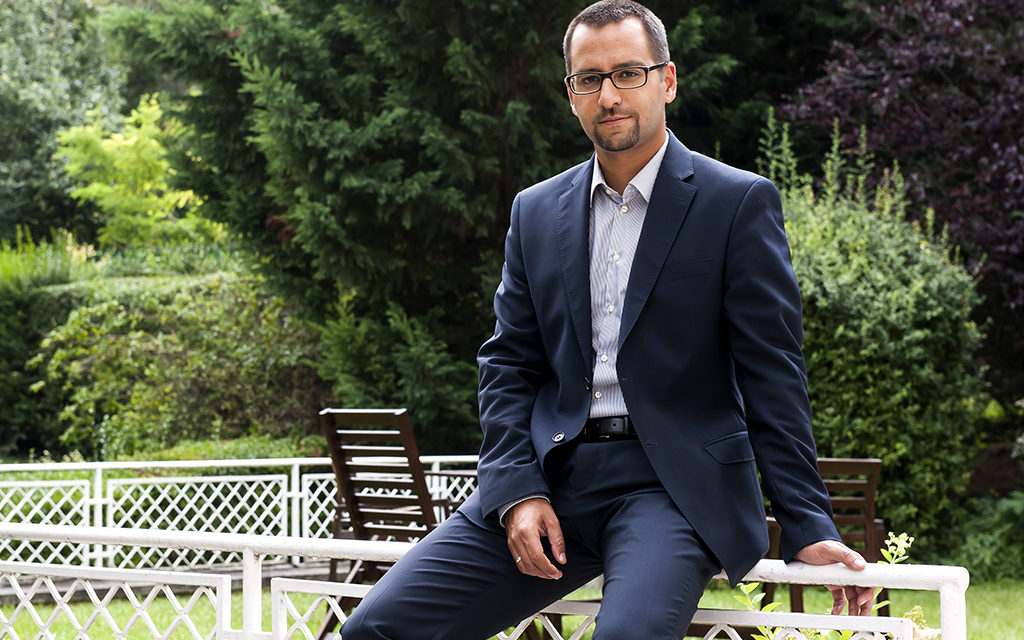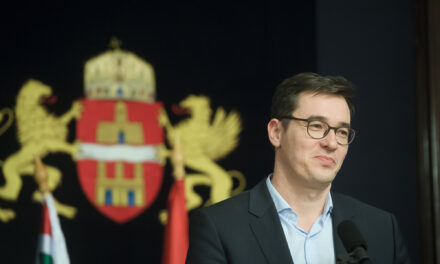There is a strong connection between the declining popularity of the opposition prime minister candidate Péter Márki-Zay and his position against the utility reduction, political scientist Tamás Lánczi stated in Kossuth radio's Sunday Newspaper program, in which he also talked about the fact that huge lobby interests have mobilized to eliminate the utility reduction.
In the interview, the political scientist believed that in the European energy crisis, "Germany and Brussels are waging a war with common sense." Tamás Lánczi said about the conflict between the Western and Eastern EU member states due to the energy price explosion: Germany and certain Western European countries want to make "practically everyone" pay for the renovation of their own outdated, poorly maintained energy infrastructure.
Of course, they don't say this, but the essence of their policy is that they would put "terrible taxes" on utility prices, he pointed out, adding that if the German and Brussels proposals were to be implemented, a dramatic, drastic increase in energy prices should be expected. Speaking about German energy policy, he recalled: after the Fukushima disaster, the country dismantled its nuclear power industry, but the energy produced there is missing. There is little energy produced in Germany, and renewable energies do not cover the needs, which is why electricity prices have started to rise "tremendously" throughout Europe, he pointed out.
This contributes to the fact that the natural gas reservoirs in Western Europe are not fully filled, so if a harsher winter comes, we will have to face a serious energy crisis, the political scientist opined. Tamás Lánczi emphasized: Hungary has accepted all relevant European Union goals and provisions in terms of climate protection, and is doing well in fulfilling them. Germany, on the other hand, continues to reject the use of nuclear energy and the opening of the Nord Stream 2 pipeline, which would also serve to achieve the climate goals.
Germany is "struggling", the population is paying more and more for energy, the industry can produce under increasingly unfavorable conditions, and the Germans are "desperately trying" to spread their own increased costs across the Euro. Central European countries are resisting this, he declared.
You can shut down the gas, you can shut down the nuclear power plants, but then you have to face the fact that there will be no electricity, nothing to heat
he said. He added: if the Germans do not yield on this issue, it will create further tension and stretch the European Union, which is already in a rather bad state.
According to Tamás Lánczi, the issue of energy prices is also important in Hungarian domestic politics, and since the change of regime, the left-wing parties somehow "always fight for high energy prices", and behind this is a "clearly palpable" type of business interest. The sale of the Hungarian energy sector and price increases can also be linked to the left, but since 2010 energy prices have only decreased, the "money pump of foreign energy companies" has been stopped, he indicated.
The political scientist said: however, foreign energy companies have high hopes that they will be able to return again after 2022 and "have the opportunity to extort people." For this, they won the support of Berlin and Brussels, and there are political forces in Hungary that represent these interests very intensively, he said.
Tamás Lánczi reminded that Péter Márki-Zay himself worked for an energy provider in the early 2000s. He pointed out: it is clear that there is an entanglement between certain actors of the opposition and the energy companies, and huge lobby interests have mobilized to eliminate the utility reduction in Hungary. The support that foreign countries provide to the Hungarian opposition is obviously not a free service, not altruistic, but rather that they expect something in return.
He reminded: Péter Márki-Zay has repeatedly expressed his opinion that the overhead reduction is bad and that he would like to abolish it. Now he is trying to deny it, because he realized that it is a very unpopular position, he added. Tamás Lánczi called it surprising that Péter Márki-Zay didn't know this before, but according to him, the opposition prime minister candidate realizes that this also has a price in terms of popularity; Hungarian people don't like this. According to Tamás Lánczi, there is a strong correlation between the declining popularity of Péter Márki-Zay and his position against the reduction of utilities.
He added: the opposition prime minister candidate does not only openly go against the expressed opinion of the Hungarian people in the area of utility reduction, this is also the case with migration. There was also a referendum on this in Hungary, the Hungarian people expressed their opinion on migration quite clearly, Péter Márki-Zay takes a stand against it. The same is the case in energy matters. "No one wants to pay double, triple, quadruple energy prices, as we see now in Western Europe," he said.
MTI
Photo: György T. Szántó













